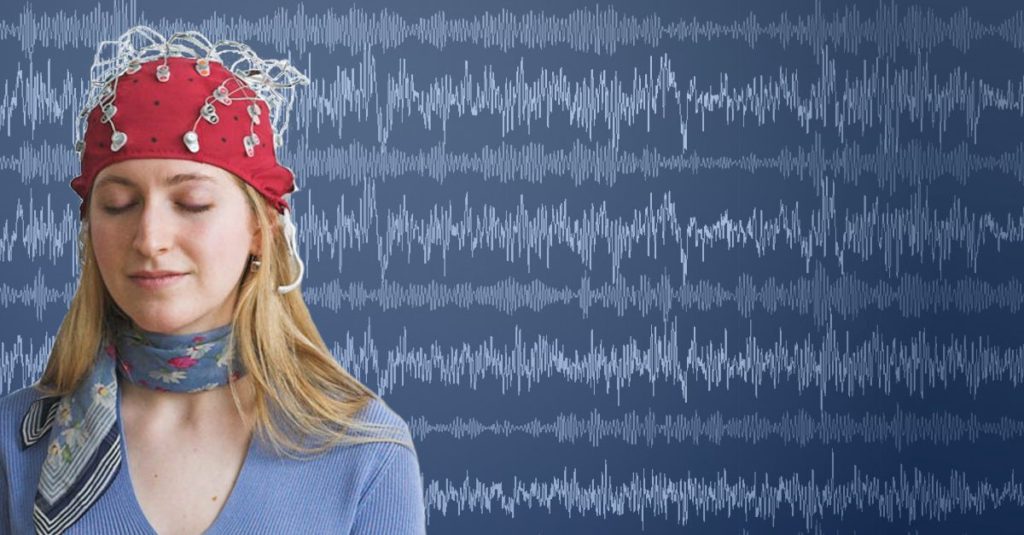Quick Hits
Daily brief research updates from the cognitive sciences

Mindfulness meditation has been shown to be beneficial for many things such as lowering stress, increasing wellbeing but also making better decisions and being less biased. Not bad.
However, some of these are attentional topics and the question a group of researchers from the University of California wanted to answer is how much and, how can mindfulness influence pain.
For this Riegner et al. recruited 40 participants all who had no experience of meditation. First their brain responses to pain were measured by being scanned while painful heat was applied to their legs. They were then split into two groups.
One group underwent four twenty-minute mindfulness training sessions where they were encouraged to focus on their breath and reduce self-referential processing by first acknowledging their thoughts, sensations and emotions but then letting them go without judging or reacting to them. The other group, the control group, listened to an audio book for their twenty-minute sessions.
They were then brought back to have their brains scanned again with the same painful heat stimulus. However, the meditation group was asked to meditate during this process while the control group just rested with their eyes shut.
So, you may wonder now whether this changed their pain perception and how?
The first answer is yes, it did change the pain perception, and quite dramatically. Both pain sensation and pain unpleasantness reduced by about 33%. That’s a big jump particularly considering this was only four twenty-minute sessions with meditation novices.
The more interesting part, maybe, is they were also able to see the precise mechanisms in the brain.
What they found is that those who had more reduced pain had decoupled networks. Specifically, between a region known as the thalamus and the default brain network. The thalamus is like a relay station connecting the body’s sensation to the rest of the brain. The default network and particularly a region called the Precuneus is involved in general mind wandering but also consciousness.
This decoupling seems to disconnect the sense of self from the physical sensation – a common goal of such mindfulness meditation.
This is impressive because it shows that mindfulness meditation can be effective against pain and is a quick and cheap method. It also empowers people and gives them a sense of control. What’s more this highlights various issues particularly with debilitating chronic pain, which is very common. Here pain can become a sense of identity for these people leading to a vicious circle of negativity, decreased wellbeing and more pain and suffering.
So, another one in the hat for the power of mindfulness meditation!

Andy Habermacher
Andy is author of leading brains Review, Neuroleadership, and multiple other books. He has been intensively involved in writing and research into neuroleadership and is considered one of Europe’s leading experts. He is also a well-known public speaker speaking on the brain and human behaviour.
Andy is also a masters athlete (middle distance running) and competes regularly at international competitions (and holds a few national records in his age category).
Reference
Gabriel Riegner, Grace Posey, Valeria Oliva, Youngkyoo Jung, William Mobley, Fadel Zeidan.
Disentangling self from pain: mindfulness meditation-induced pain relief is driven by thalamic-default mode network decoupling.
Pain, 2022; Publish Ahead of Print
DOI: 10.1097/j.pain.0000000000002731
More Quick Hits
Why Thinking Makes You Tired
Quick HitsDaily brief research updates from the cognitive sciences e all know that feeling of having engaged in hard cognitive, thinking, tasks, and feeling tired. If it goes on long enough, we may feel mentally fatigued, drained, or even...
Your Job Can Protect You From Cognitive Decline
Quick HitsDaily brief research updates from the cognitive sciences f you have the right job that is. First let’s understand what the researchers were investigating. There is something strange going on with Alzheimer’s - we know that in Alzheimer’s...
How Nature Is Good For Your Health
Quick HitsDaily brief research updates from the cognitive sciences have reported multiple times how nature is good for your health. For example, in my article on the simple benefits of walking I also show how nature helps in multiple ways such a...
Do Your Chores, You’ll Live Longer – And Better!
Quick HitsDaily brief research updates from the cognitive sciences o, I haven’t been paid to write this by irate spouses or parents! Fact is doing the chores could be very beneficial to your wellbeing. How so you may ask? Well, I admit I have...
Why Having a Hit Reduces Creativity
Quick HitsDaily brief research updates from the cognitive sciences n music this happens often – a band lands a hit but then fails to do anything special again. A well-known occurrence with hits like Tequila in 1958 being the ultimate one-hit wonder...
The Surprising Results Of How Music Reduces Pain in Your Brain
Quick HitsDaily brief research updates from the cognitive sciences hen you’re in pain any form of relief is welcome – we tend to immediately revert to pain killers but there are many other methods of, at least, reducing pain. I have recently...






